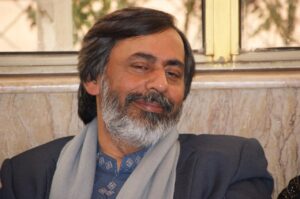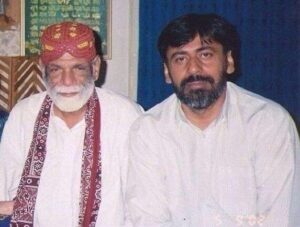Remedy for heart disorder
Introduction
Heart disorders are a significant health concern worldwide, affecting millions of people each year. Understanding these conditions, their causes, and effective management strategies is crucial for maintaining heart health. In this comprehensive blog, we will explore heart disorders, delve into the detailed causes, discuss various management techniques, and introduce a unique solution known as the Ultimate Remedy, which offers hope and healing for individuals dealing with heart-related issues.
Understanding Heart Disorders
Heart disorders, also known as cardiovascular diseases (CVDs), encompass a range of conditions that affect the heart and blood vessels. These conditions can disrupt the normal functioning of the heart, leading to serious health complications. Some common heart disorders include coronary artery disease (CAD), heart failure, arrhythmias, and valvular heart disease.
Causes of Heart Disorders (In Detail)
Atherosclerosis: One of the primary causes of heart disorders is the buildup of fatty deposits, known as plaques, in the arteries. This condition, called atherosclerosis, narrows and hardens the arteries, reducing blood flow to the heart.
High Blood Pressure (Hypertension): Elevated blood pressure puts additional strain on the heart and blood vessels, increasing the risk of heart disorders such as heart attack and stroke.
High Cholesterol: High levels of LDL cholesterol (commonly referred to as “bad” cholesterol) can contribute to the development of atherosclerosis, increasing the risk of heart disease.
Smoking: Smoking tobacco damages blood vessels, reduces oxygen delivery to the heart, and significantly increases the risk of heart disorders.
Diabetes: Uncontrolled diabetes can lead to high blood sugar levels, damaging blood vessels and increasing the risk of heart disease.
Obesity: Being overweight or obese can strain the heart, increasing the risk of heart disorders. It is also associated with other risk factors like diabetes and high blood pressure.
Family History: A family history of heart disorders can predispose individuals to a higher risk of developing these conditions.
Physical Inactivity: Lack of regular physical activity can contribute to obesity, high blood pressure, and overall poor cardiovascular health.
Management of Heart Disorders (In Detail)
Managing heart disorders requires a comprehensive approach that addresses both lifestyle modifications and medical interventions. Here’s a detailed look at management strategies:
Lifestyle Changes: Adopting a heart-healthy lifestyle includes regular exercise, maintaining a balanced diet, quitting smoking, moderating alcohol consumption, and managing stress.
Medications: Depending on the specific heart disorder, medications such as statins (for cholesterol), blood pressure medications, and blood thinners may be prescribed to manage the condition.
Surgical Interventions: In severe cases, surgical procedures like angioplasty, stent placement, bypass surgery, or valve replacement may be necessary to restore proper heart function.
Cardiac Rehabilitation: This structured program involves exercise, education, and support to help individuals recover from heart-related issues and improve heart health.
Monitoring: Regular check-ups with a healthcare provider are essential to monitor heart health and adjust treatment plans as needed.
The “Ultimate Remedy” An Alternative Approach
The Ultimate Remedy offers an innovative approach to supporting heart health. This audio therapy harnesses the power of sound and intention to promote healing and alleviate various conditions, including heart disorders. Here’s how you can use it:
Download the Ultimate Remedy audio from our website (links provided).
Follow the instructions provided to listen to the audio. Find a quiet and comfortable space where you can fully focus on the experience.
Allow the therapeutic sounds and intentions embedded in the audio to guide you toward a state of deep relaxation and inner healing.
Use the Ultimate Remedy regularly to experience its full benefits. Consistency is key to achieving positive results.
Testimonials from individuals who have used the Ultimate Remedy attest to its effectiveness in promoting healing and alleviating a wide range of conditions, including heart disorders. For any questions or support, you can contact help@mastmasthealers.com.
Happy Patients
Years since day one
%
Satisfaction
Testimonial
How to Listen to the Ultimate Remedy:
Download the Ultimate Remedy audio from our website or app. It’s free and accessible to all.
- Choose a quiet, comfortable space where you won’t be disturbed.
- Close your eyes and visualize yourself in the presence of your higher power or the essence of the universe.
- Listen to the audio with great concentration and closed eyes.
- After the audio is finished, open your eyes and take half a glass of water.
- Close your eyes again and say “your name” or a word that represents your belief (such as “God”, “Universe”, or “Love”) three times in your heart.
- Drink the water with closed eyes in three sips.
- For optimal results, it’s recommended to listen to the Ultimate Remedy three times a day (morning, evening, and before sleeping) for seven consecutive days.
About the Creator – Syed Safdar Hussain Bukhari
Introduction and Early Life
Syed Safdar Hussain Bukhari, also known as Kakian Wali Sarkar, was a unique example of kindness, devotion, and tenacity. Born on May 6th, 1940, he dedicated his life to serving humanity and providing relief to those suffering from various ailments.

Social Work and Spiritual Journey
Between 1960-1980, he engaged in social work by undertaking road repairs, establishing schools, and arranging medical supplies in Lilla Town. In 1990, he left his ancestral home and family wealth to move to Lahore, where he comforted the depressed and saddened through mystic dance and music.
The Ultimate Remedy
In 1998, Baba Bukhari’s research led to the discovery of “The Ultimate Remedy,” a blessed audio that he believed could cure physical, psychological, spiritual, and supernatural problems. The remedy involved listening to the audio three times a day for seven consecutive days, followed by a specific water ritual. This method claimed to cure various ailments, including coronavirus, AIDS, cancer, drug addiction, worldly problems, and psychological issues.
Legacy and Death
Baba Bukhari’s research and unconditional love left a lasting impact on humanity, providing positive thinking, peace of mind, health, fearless life, and an example of love and compassion. He passed away on February 8th, 2005, leaving behind a legacy of healing through “The Ultimate Remedy.”

His spiritual successor is Syed Baba Jaan
According to Baba Bukhari (RA), his spiritual successor is Mr. Shakir Uzair, also known as Syed Baba Jaan . As the chosen heir to Baba Bukhari’s spiritual legacy, Syed Baba Jaan carries forward the teachings and practices that have been passed down through generations. Dedicated to serving humanity and promoting healing, Mr. Shakir Uzair continues to spread the message of love, compassion, and the transformative power of the Ultimate Remedy to help countless individuals in their journey towards holistic wellness and personal growth.

